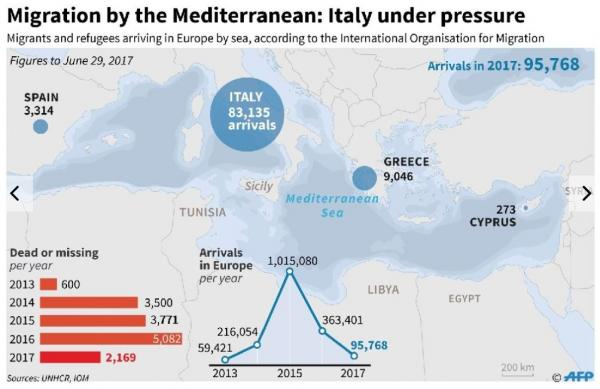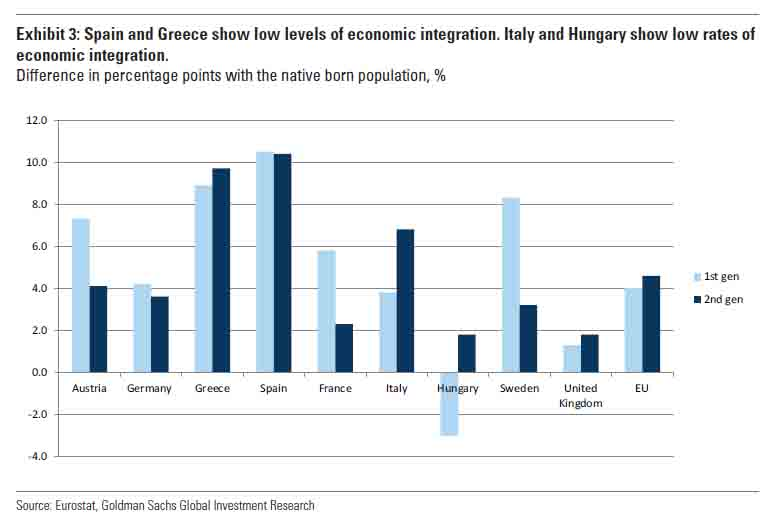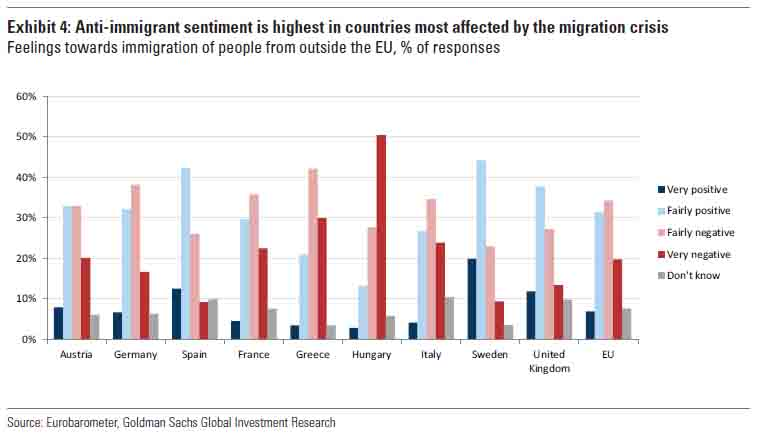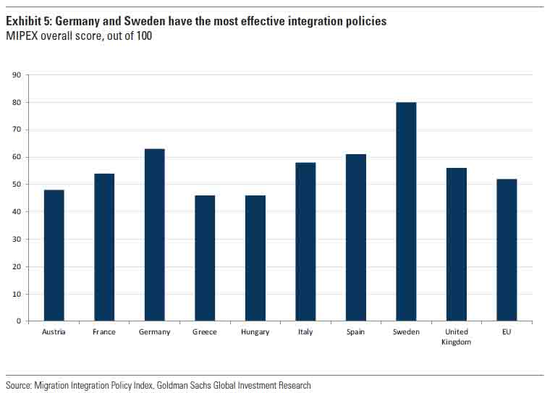While Europe's economy is steadily recovering, with excellent performance in various economic indicators and an overall thriving atmosphere, the longstanding issue of refugees is resurfacing as a threat in Europe. After years of ongoing refugee crises, European countries have successively closed their borders, concentrating the pressure on countries along the Mediterranean coast, especially Italy.
In the first half of this year, nearly 100,000 refugees traveled from the Middle East and North Africa through the Mediterranean to Italy, with the numbers continuing to rapidly increase.
However, Goldman Sachs points out that in terms of economic capacity, social integration ability, and administrative efficiency, Italy is one of the major European countries with a low capacity to bear refugees.
Next year, Italy is holding elections, and the populist and Eurosceptic extreme parties could potentially trigger a "black swan" event in Italy, or even bring a crisis to all of Europe.
Why is the refugee crisis worse in Italy?
In the past few years, a large number of immigrants entering Europe primarily came from war-torn regions like Syria and Iraq, with their main route passing through Turkey and the Western Balkans before reaching Germany. However, as the situation in the Middle East has stabilized, the number of refugees from these countries has decreased, and refugees arriving in Italy, Spain, and other countries through North Africa and the Mediterranean have become the predominant group. Among the Mediterranean coastal countries, Italy has become the preferred choice for refugees.

Despite being a major European country, Italy's capacity to accommodate refugees is very limited due to its own economic and political tensions.
Immigrants in Italy struggle to find employment, and economic integration is poor
Goldman Sachs primarily analyzes Italy's economic capacity to bear refugees from the perspective of employment:
We compared the gap in employment between the first and second generations of immigrants and native citizens in several European countries. This gap is an effective indicator of an economy's ability to integrate economically, and the closer this gap is to zero, the stronger the economy's integration capability.Our research shows that Spain and Greece perform worse in terms of economic integration, while in Italy and Hungary, second-generation immigrants find it more difficult to economically integrate into the local society compared to their parents.

Therefore, we believe that for refugees, economic integration in Italy is quite challenging.
Italian society has poor inclusivity towards immigrants.
Goldman Sachs uses public attitudes towards immigrants as a measure of a country's level of social integration.

A survey indicates that Hungary has a stronger hostility towards immigrants, followed by Greece and Italy. Moreover, Italians' hostility towards incoming immigrants is on the rise as the number of refugees increases.
While Italy's administrative capacity ranks in the middle, it faces real challenges.
Goldman Sachs assesses government administrative efficiency mainly based on the Migration Integration Policy Index (MIPEX), which is a measurement jointly conducted by the Migration Policy Group and the Barcelona Centre for International Affairs. This index aims to gauge each country's government's ability to accept and integrate immigrants.

Greece and Hungary have a weaker government capacity for immigrant integration. Italy, after taking the initial steps towards refugee equality, falls in the middle. However, there are still challenges in practice, as most refugees in Italy can find employment but have a lower standard of living compared to the native population.
Italy will become another black swan in Europe?
Goldman Sachs concludes that, considering the changing demographics of immigrants and the national context, Italy has become one of the European major economies with lower capacity to bear refugees.
In May of next year, Italy will hold elections, and how to handle the refugee crisis in a fragile economic situation will be a focal point for political parties. Populism and Euroskepticism may gain voter trust through the refugee issue, and Italy could potentially become another "black swan" event in Europe, following the example of Brexit.
Source: Wall Street CN
Original link: http://t.cn/RCKYi2F




